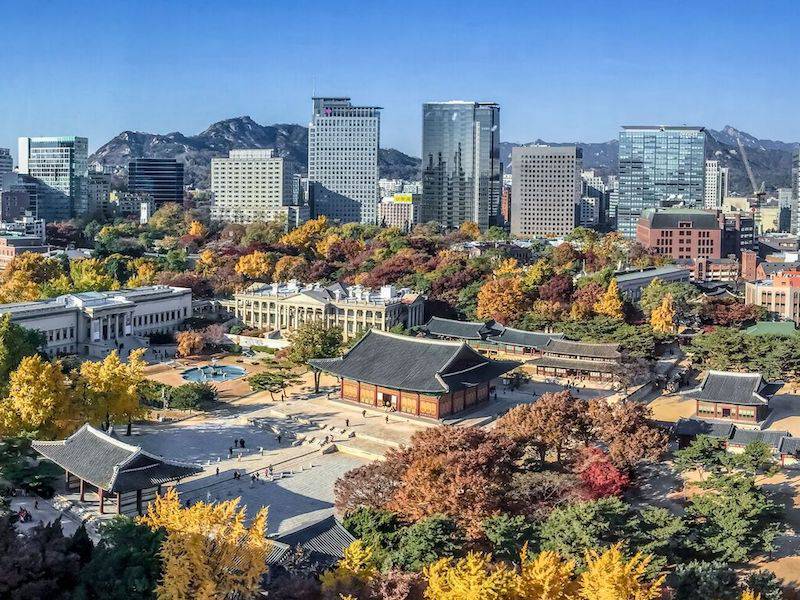Seoul tourism that makes both residents and visitors happy

The Seoul Metropolitan Government recently announced a stream of new tourism projects in its mid-to-long-term development plan.
With the goal of attracting 50 million tourists a year to Seoul, the Seoul Metropolitan Government introduced various initiatives, including a course of 20 new must-visit attractions, tourism products related to the De-Militarized Zone (DMZ), and a Seoul Travel Voucher for temporary workers, individuals with disabilities, and low-income groups.
These projects are part of the local government’s efforts to respond to a growing demand for work-life balance and also to shed the city’s image as a low-cost, shopping-centered travel destination. According to its development plan, Seoul is striving to become (1) a tourism city where citizens are happy, (2) a charming city rich in content, (3) a convenient and smart tourist city, (4) a city with a sustainable tourism industry, and (5) a city that leads the international tourism industry.
The mid- to long-term development plan, which will be pursued from 2019 to 2023, is made up of 5 main strategies, 12 core tasks, and 96 total projects. The Seoul Metropolitan Government plans to invest KRW 721,500,000,000 in total into these initiatives.
With its new projects, Seoul Metropolitan Government aims to attract a total of 50 million tourists (23 million international and 27 million domestic) to the city. Instead of solely relying on international tourists interested in Korean pop culture, Seoul plans to make the city a place that Koreans from other regions want to visit, too. Last year, Seoul attracted 10.5 million international tourists and 17 million domestic tourists. Thus, Seoul is planning on doubling this number within five years.
To achieve this goal, Seoul is establishing 20 Must-Visit Place (MVP) Courses, including the Oil Tank Culture Park, Donuimun Museum Village, and the alleys of Ikseon-dong.
In addition, the city plans on strengthening and expanded high value-added businesses like medical tourism, hallyu, temple stays, and gourmet food tours, as well as its competitiveness as a MICE city.
Furthermore, the city plans on building a “smart tourism online and offline platform” using IoT and virtual reality programs aimed at prospective visitors for easier travel planning.
A “Seoul travel support center” that caters to domestic residents is also in the works. The center will provide important travel information (e.g., weather, traffic) and provide specialized tourism courses for different age groups and interests.
The Seoul Travel Voucher will be provided to partially support the travel and recreation of 65,000 part-time and contract workers and 2,000 individuals from low-income groups and those with disabilities. The amount of the travel voucher is determined by how much the individual spends on travel. For instance, if an individual chooses to spend KRW 200,000 on travel, Seoul will provide a matching KRW 200,000 to supplement the individual’s travel. The voucher amount can be used on a tourism product mall run by the city.
The Seoul Metropolitan Government also plans on building a Seoul R&D Support Center to assist small-scale tourism businesses and establish a KRW 50,000,000,000 fund until 2022 to promote Seoul tourism. The city also will establish a Seoul Fair Tourism Support Center to address the issue of overtourism.
Additionally, in celebration of improved relations on the Korean Peninsula, Seoul plans to host a “Peace Tourism Week” and develop a peace tour course experience linking the de-militarized zone (DMZ), the border which separates North and South Korea, and Samcheonggak, the venue for meetings between each country’s Red Cross groups, and a fair showcasing South and North Korean food.
To efficiently execute its mid-to-long-term plan and promote synergy in the tourism industry, the city aims to build a Seoul Tourism Plaza (Cluster) by 2020, which will include the Seoul Tourism Organization, startups, tourism associations, and international tourism offices.
Joo Yong Tae, the director of Seoul’s tourism and sports bureau, said: “This plan not only includes quantitative growth based on international tourists but also mid-to-long-term strategies and tasks for domestic tourism and qualitative improvements to Seoul tourism.”
Other Articles
About Us
Supported by the Union of International Associations (UIA), the International Association of Professional Congress Organisers (IAPCO) and the Interel Group, the global public affairs and association management consultancy, Headquarters Magazines serve the needs of international associations organising worldwide congresses.
















